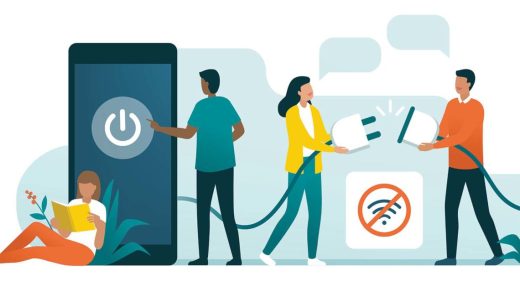The Parliamentary elections in Lithuania are approaching and will be held on 11 October 2020. Oleg Šurajev, a comedian, YouTube content creator, decided to use these circumstances for a social experiment.
Oleg Šurajev and his team from the 1k YouTube channel created a non-existing candidate and agitated for him, both on the streets and the internet. The physical image is of an actual person, more precisely a Polish parliament member Mieczysław Kasprzak, he was renamed by Oleg Šurajev and became Valdas Kazlauskas. This experiment, in its entirety, got presented to the public in the form of a YouTube video (sadly, the video has no English subtitles). At the begging Oleg Šurajev states that even though he is embarrassed about what a team led by him did, but they were simply trying to answer a question, can a person that does not exist run for parliamentary election. With the advent of the New Media Age, such an experiment made me wonder how easy it is to maintain a created character that has no equivalent in real life?
The team led by Oleg Šurajev created posters, flags, and a website for a non-existing political party in idea led by Valdas Kazlauskas. The image and the main political goals by the party for sustainable Lithuania (Darnios Lietuvos partija) are making fun of old fashion politicians.
Not to get caught up with specific references to Lithuanian politics, by what other means some people fell for a scam that Valdas Kazlauskas and his political party number 13 are real? The team conducting this social experiment managed to convince by email several regional newspapers to print out an article about Valdas Kazlauskas. The more shocking fact is that Oleg Šurajev managed to negotiate and give an interview in written form, under the name of Valdas Kazlauskas, with one of the most popular internet news portals in Lithuania called Delfi. After the editors realized the mistake made on their part, the article got deleted. To add, one of the main news radios in Lithuanian got tricked into conducting a short interview with Valdas Kazlaukas. While it is relatively easy to write an email pretending to be someone else, Oleg Šurajev needed to hire an actor to voice Valdas Kazlauskas’s political messages for the radio. The team that created discussed YouTube content stated that the closest media institution that almost figured out their sham was the radio, due to the large number of questions asked before making time for an interview.
How did that happen? Citizens have access to official sources to check if any politician is part of the elections or not. Unfortunately, the majority of lithuanians got convinced by the posters, official-looking emails, the website, and saw no need for further investigation. It is not only due to laziness and successful publicity stunts that people do not double-check. The image created by Oleg Šurajev was also of a typical politician that was part of this “grey” parliament mass. Valdas Kazlauskas was just not interesting enough for people to even wonder if he is real.
In the closing remarks of the video, a 1k team member says that from this experiment, he had learned that, if one makes up a character with a bit of a back story, that there is a chance to get into social circles that otherwise would be unattainable. For me, it seems that it is easier than I thought to get a non-existing person to become part of Parliamentary elections in some of the spectators’ eyes, just a lot of courage is needed. With the current COVID-19 outbreak urging for the online possibility to cast a vote, how can we sufficiently prevent ourselves and others from falling shot of not finding a politician on the voting list, even though we thought he/she was real and running for a position?




Dear Aleksa,
your post is very interesting and I definitely will read more about this! This is indeed great and worth further debate topic. I am trying to think about all elections I took part in and examine if I ever actually double-check people I wanted to vote for (luckily they end up being real). As funny as the situation is, it is also very much eye-opening. Nowadays it is becoming more and more difficult to distinguish what is fake and what is real.